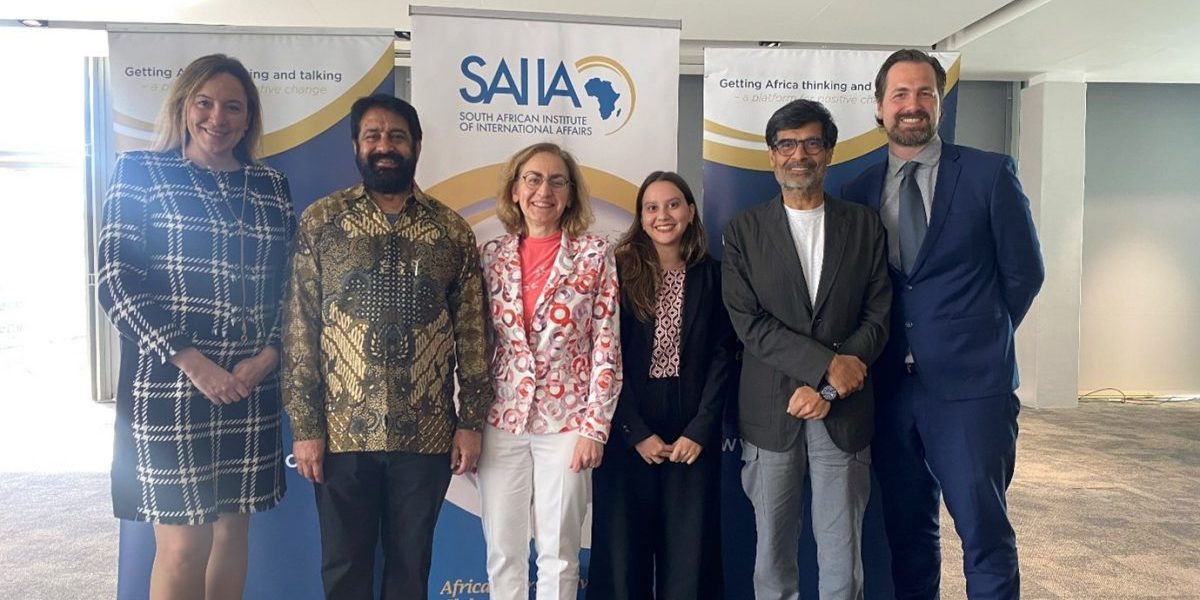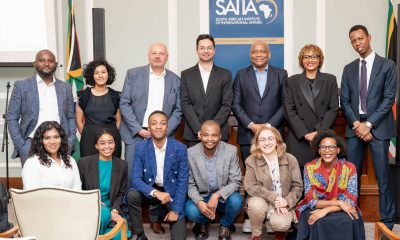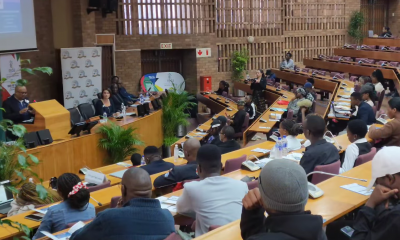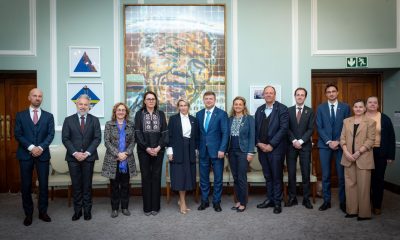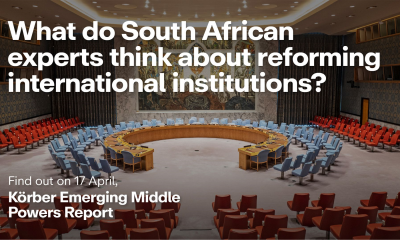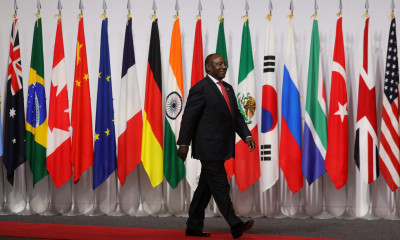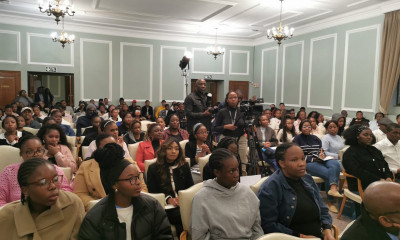SAIIA participated in the first edition of the Cape Town Conversation on 24-26 November 2023. The event brought together over 70 think tankers from the G20 and African countries to propose new strategies and approaches for building sustainable development, leveraging multilateralism and forging a new international order. The outgoing Think20 Secretariat of India handed over the chair of the T20 to Brazil for 2024, as Brazil hosts the G20.
Former South African president Thabo Mbeki opened the weekend’s activities noting the opportunity the conference provides for the Global South to advance its interests and make its solutions to world crises heard. The Minister of International Relations and Cooperation, Dr Naledi Pandor, gave a special address as well, reflecting on the taut state of multilateralism in a world pulled between geopolitical conflict, the threat of climate disaster and the fraying global economic system.
Our Chief Executive Elizabeth Sidiropoulos spoke on how a more vocal and active Global South can engage the Global North in an evolving world order in a session moderated by Dr Samir Saran, chair of the Think20 India Secretariat.
SAIIA also inked a Memorandum of Understanding with the Instituto de Pesquisa Econômica Aplicada (IPEA, Brazil) on the sidelines of the Cape Town Conversation. The four-year memorandum of understanding includes plans for continued collaboration on climate change, the BRICS and the G20 and covers both Brazil’s G20 presidency and South Africa’s G20 presidency in 2025 between the two institutes.

On 24 November, SAIIA hosted a policy dialogue on the sidelines of the conference, looking to the UNFCCC COP28 and the role BRICS nations play in shaping the Just Transition agenda.
Panellists included Dr Samir Saran (President, Observer Research Foundation), Dr Victoria Panova (Vice Rector, Higher School of Economics, Russia) and Maria Beatriz Mello (Researcher, the Socioenvironmental Platform at the BRICS Policy Centre). The discussion kicked off with a keynote address by Ambassador Sooklal, BRICS Sherpa. He reflected on the successes of the 15th BRICS Summit held by South Africa in August and noted that on climate change, the BRICS remain dedicated to renewable energy and have formulated a clear and concrete timeline for each original member’s net-zero pathway, with the partnership towards an equitable transition a key pillar of South Africa’s BRICS agenda. Dr Saran outlined a principle-based approach for the BRICS to reach a consensus on climate change, energy and the just transition during the discussion and this will be shared with the BRICS Think Tank Council for consideration during Russia’s 2024 BRICS presidency.

